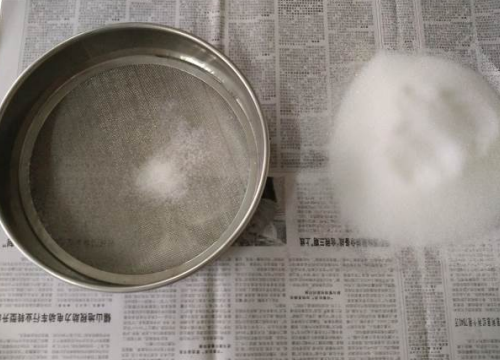Polystyrene Beads
Polystyrene Beads
Polystyrene Beads are specially sized, solid Polystyrene spheres made up of a combination of Polystyrene and Divinyl benzene. Polystyrene Beads are chemically inert, free of impurities, and non-polluting.
Polystyrene beads come in 2 sizes; Coarse (50-80), where the bead size is between 20-40mesh (355-1000 microns), and Ultra Coarse (100-170), where the bead size is between 18-23mesh ( 701-1100 microns). The beads can maintain their spherical shape past 26,000 hydrostatic psi. They have a thermal stable to 380°F.
Polystyrene Beads can be used in all water and oil-based drilling fluids to reduce torque and drag and aid in preventing differential sticking. They should have no measurable effect on the mud system’s desired properties and can be removed by a desilter or centrifuge.
Adding and maintaining 7.5-12.5 kg/m³ of Polystyrene Beads can reduce torque and drag anywhere from 10.0 to 40.0%. The severity of hole problems and solids content will determine the actual concentrations required.
Preparation & Procedures
Polystyrene Beads should be added directly through the mixing hopper. It is advisable to use a dust mask and eye protection while mixing all powdered products.
Handling: Wash thoroughly after handling. Use with adequate ventilation. Minimize dust generation and accumulation. Avoid contact with eyes, skin, and clothing. Keep the container tightly closed. Avoid ingestion and inhalation.
Note: Polystyrene Beads will have the same effect as ball bearings on any hard surface. Post warning signs if spilled and sweep up immediately.
Personal Protective Equipment
Eyes – Wear appropriate protective eyeglasses or chemical safety goggles as described by OSHA’s eye and face protection regulations in 29 CFR 1910.133 or European Standard EN166.
Skin – Wear appropriate protective gloves to prevent skin exposure.
Clothing – Wear appropriate protective clothing to prevent skin exposure. Respirators: Follow the OSHA respirator regulations found in 29 CFR 1910.134 or European Standard EN 149. Use a NIOSH/MSHA or European Standard EN 149 approved respirator if exposure limits are exceeded or if irritation or other symptoms are experienced.
More Chemicals
<<Return back to Oil Field Chemicals home page>>
Other Chemicals Available (click on the name)
Barite
Calcium Ammonium Nitrate
Calcium Chloride
Calcium Nitrate
Caustic Soda
Diutan Gum
Gilsonite
Natural Graphite
Modified Starch
PAC Polyanionic Cellulose
Potash
Soda Ash
Sodium Acid Pyrophosphate SAPP
Sodium Sulfite
Sulfamic Acid
Synthetic Graphite
TKPP
Xanthan Gum





